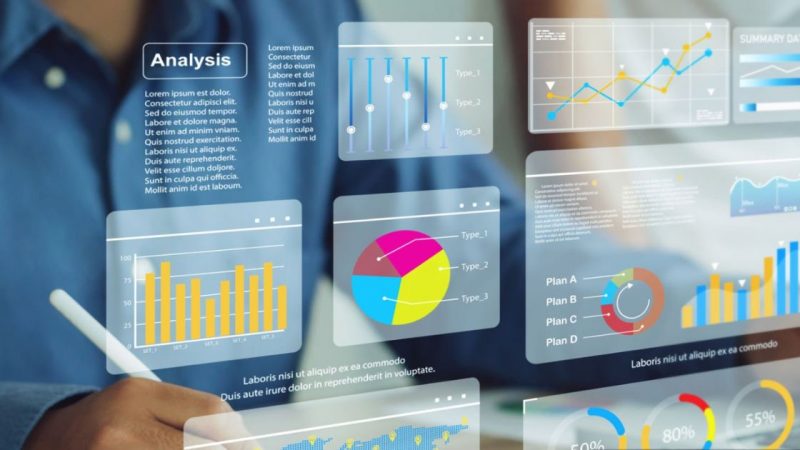Even if you’re not into finance, finance matters can still hit you hard. Many people feel like finance isn’t something they need to worry about until financial fluency becomes a problem.
Lots of resources are out there to help with financial troubles, but not everyone can easily find or understand them. Complicated money talk, expensive services, and not knowing which tools to use are some of the barriers.
Differentiating Financial Fluency and Financial Literacy
When we talk about being good with money, calling it “financial literacy” suggests you’re either good at it or not. But “financial fluency” recognizes that we can all learn and get better with finance throughout our lives. Everyone has different needs when it comes to learning about finance. People in management, recruitment, and even finance all have different challenges.
We need innovation and new ideas to help people communicate about finances and overcome barriers that stop them from learning about it. Many people can’t get the help they need to become “financially fluent” and understand finances.
Essential Vocabulary to Develop Financial Fluency
If you don’t work in finance, talking about data, predictions, and values might feel scary. However, understanding finance can help you explain how decisions affect money to others and have a bigger influence on your company.
Here are a few simple words and meanings you should understand:
Asset Allocation
This involves deciding how to distribute your money among different types of investments, called asset classes. These include:
- Bonds – Bonds are like loans. When you buy one, you’re lending money to a government or company and get paid back with interest over time.
- Stocks – Stocks represent ownership in a company. If you buy stocks, you become a part owner and may get a share of the company’s profits in the form of dividends.
- Cash and Cash Equivalents – This includes money or assets that can quickly be turned into cash.
Which investment option is superior: bonds or stocks? Well, it all hinges on what you want to achieve with your investments. Bonds are safer than stocks and offer a stable income over time. However, they can lose value due to inflation. Stocks, on the other hand, are riskier, but when their prices go up, they can yield significantly higher profits compared to bonds.
Accounts Payable
Accounts payable is the cash a business owes to others for things they bought or services they got. It’s like when you get something now but haven’t paid for it yet. Businesses show this as short-term debts or what they owe on their balance sheets.
Accounts Receivable
Accounts receivable is the cash that customers owe a business for things they bought or services they received but haven’t paid for yet. This happens when a business sells something but hasn’t gotten the money yet. They usually give customers invoices showing what they owe. On their balance sheets, businesses count accounts receivable as assets.
Balance Sheet
It is a key financial paper made by businesses. It shows what a company owns, owes, and the value that belongs to its owners at a specific time. This document splits into two sides: assets (what it owns) on one side and liabilities and shareholders’ equity (what it owes and what belongs to owners) on the other. The amounts on both sides must be balanced.
Budget
A budget gives you a big picture of your business’s money. It shows what you have now and predicts what you’ll spend and earn in the future. This includes money coming in, going out, and big expenses like loans. Your budget helps you make smart choices for your business. You usually make a budget for a year and keep an eye on it every month.
Capital Assets
Capital assets are valuable things like houses, cars, investments, stocks, bonds, and even rare items like art. In business, a capital asset is something important that lasts more than a year and isn’t meant to be sold as part of normal business activities.
Capital Gain
When something you own, like an investment, becomes worth more than what you paid for it, that’s called a capital gain. If you sell it for less than you bought it, it’s called a capital loss.
Cash Flow Statement
The cash flow statement is one of the main financial papers for businesses. It shows how money moves in and out of a business during a certain time. This statement helps to see if a business can pay its bills and expenses on time. If a business gets more money than it spends, it’s in good cash flow.
Compound Interest
Compound interest is like interest building on top of each other. When you save or invest money, you earn interest not just on the original amount, but also on the interest you’ve already earned. This can help your savings grow faster, but it can also make debts increase because interest is charged not only on the initial loan but also on any added fees over time.
Forecasting
Forecasting means using data and guesses about the future to predict how much money you’ll make and spend. It’s handy for figuring out the likely profits of a project by estimating future cash flows and then figuring out how much those future profits are worth in today’s money.
Income Statement
An income statement, also called a profit and loss statement, is a key financial paper for businesses. It shows how much money a company makes and spends during a certain time, usually each month. This statement helps gauge how well a company can make money and how it might grow.
Inflation
Inflation means prices of things generally go up over time. If what you earn stays the same while prices rise, your money can’t buy as much as it could before, so it’s worth less.
Liquidity
Liquidity measures how quickly you can turn your stuff into cash. Cash itself is the most liquid because you can use it right away. Real estate and land are less liquid because it can take a long time to find a buyer and sell them.
Net Worth
Net worth shows how well-off you are financially. You calculate it by subtracting what you owe from what you own.
Valuation
Valuation means figuring out how much something is worth right now. Doing this regularly helps you stay ready if you want to sell your business or merge with another one, or if you need to attract investors.





